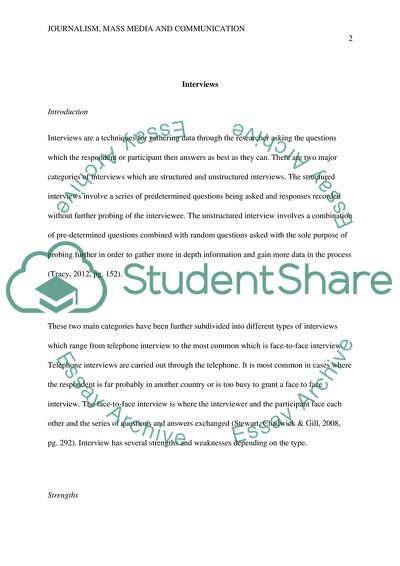Cite this document
(Strengths and Weaknesses of Research Methods Essay Example | Topics and Well Written Essays - 1500 words - 2, n.d.)
Strengths and Weaknesses of Research Methods Essay Example | Topics and Well Written Essays - 1500 words - 2. https://studentshare.org/journalism-communication/1836110-from-the-perspective-of-your-own-discipline-critically-assess-the-strengths-and-weaknesses-of-any-two-research-methods-discussed-on-this-module
Strengths and Weaknesses of Research Methods Essay Example | Topics and Well Written Essays - 1500 words - 2. https://studentshare.org/journalism-communication/1836110-from-the-perspective-of-your-own-discipline-critically-assess-the-strengths-and-weaknesses-of-any-two-research-methods-discussed-on-this-module
(Strengths and Weaknesses of Research Methods Essay Example | Topics and Well Written Essays - 1500 Words - 2)
Strengths and Weaknesses of Research Methods Essay Example | Topics and Well Written Essays - 1500 Words - 2. https://studentshare.org/journalism-communication/1836110-from-the-perspective-of-your-own-discipline-critically-assess-the-strengths-and-weaknesses-of-any-two-research-methods-discussed-on-this-module.
Strengths and Weaknesses of Research Methods Essay Example | Topics and Well Written Essays - 1500 Words - 2. https://studentshare.org/journalism-communication/1836110-from-the-perspective-of-your-own-discipline-critically-assess-the-strengths-and-weaknesses-of-any-two-research-methods-discussed-on-this-module.
“Strengths and Weaknesses of Research Methods Essay Example | Topics and Well Written Essays - 1500 Words - 2”. https://studentshare.org/journalism-communication/1836110-from-the-perspective-of-your-own-discipline-critically-assess-the-strengths-and-weaknesses-of-any-two-research-methods-discussed-on-this-module.


